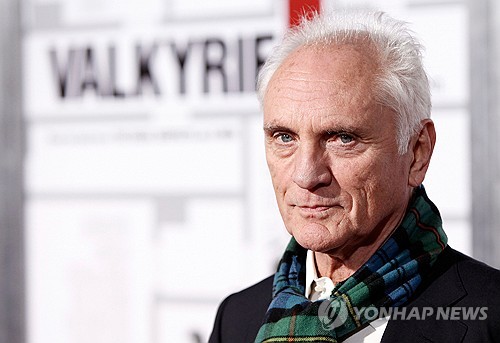"Zod, the Actor Who Made the Villain's Face"
Even a brief moment can linger. His gaze on screen is hard to forget.
On August 17, 2025, reports said he died at the age of 87.
Multiple outlets including Reuters, AP and Yonhap simultaneously reported the death of the actor who defined a generation.
The place and cause of death have not been released.
The sense of the event is visible in the numbers.
Born in London in 1938, he first drew attention with 1962's Billy Budd, earning an Academy Award (Oscar) nomination for Best Supporting Actor, and over more than 60 years he appeared in roughly 90 films and television shows.
He became internationally known for playing the villain General Zod in 1978's Superman and again in 1980's Superman II.
His death feels like a closed page of classic cinema, not just the loss of one performer.

Small Ripples, Big Waves
A single scene can call a whole era to mind; one performance can send a long ripple.
Terence Stamp built a villain who was more than a caricature; he layered complexity onto the role.
His General Zod used force and charisma to crack the Superman narrative, and as a result the character stayed in audiences' memories.
Actors sometimes start small ripples that reshape film history, critics observe.
History demands context.
Coming out of 1960s theater and film traditions, he brought a distinctly British acting foundation to Hollywood screens.
The talent recognized in Billy Budd reappeared across diverse roles, and his career reflected broader social and cinematic contexts.
Thus an individual's career can be seen as a complex product of era, technique and audience expectation.
Why Does His Absence Feel Larger Now?
A sudden emptiness sweeps in, and people reach for old films.
The symbolic villain General Zod was an emblem of his time, and his absence dissolves that living symbol.
However, nostalgia alone does not explain everything.
Meanwhile, the modern superhero story has shifted.
Today's villains often come with detailed backgrounds, motives and psychological depth.
So the archetypal villains of the 1970s and 1980s can look flatter to contemporary viewers.
On the other hand, performances of that era demanded theatrical technique and presence, and within that frame his acting was very effective.
Honoring the Work Left Behind
Times change, but respect remains; an acting legacy keeps value over time.
Stamp brought human grain to parts that might otherwise be labeled simply "villain."
His General Zod sometimes revealed the logic of power, beyond mere hostility.
For that reason critics argue his performance did more than embody evil; it exposed narrative fault lines.
At the same time, there are critical voices.
Some reviewers and viewers argue that the storytelling devices of the time are overly simple and classical.
From that perspective it is understandable to say Zod lacks psychological thickness.
Ultimately, differing readings of the same performance reflect shifting cultural frames.
When Film History Closes a Chapter
The final line leaves an echo; what is required now is record and reinterpretation.
Stamp's career was more than a filmography; it served as a signpost in acting history.
His General Zod influenced how later works designed villains and encouraged genre experiments.
As a result, his death may prompt fresh reassessment in film history.
Public concern expands beyond memory.
Discussions about the health and welfare of aging actors, and the roles and treatment of older performers in the film industry, are resurfacing.
Meanwhile, reinterpreting classic works in the light of modern audiences will be an important challenge.
These conversations can move beyond mourning into practical questions of care and cultural stewardship.
Terence Stamp was born in London in 1938 and first drew notice for 1962's Billy Budd, earning an Academy Award (Oscar) nomination. He gained global recognition as General Zod in 1978 and 1980's Superman films.
On August 17, 2025, he died at 87; the place and cause of death have not been disclosed.
His performances added humanity and charisma to villain roles, influencing how antagonists are designed in the superhero genre while critics note that shifts in cultural context have led some to find those characters less layered today.